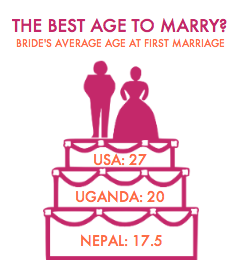
March 19, 2013 | Education, Law and Justice, Economic Opportunity
Iraq’s Forgotten Women
The group that's teaching them to fight for their rights.
By Maya Catherine Popa
Remember Iraq? Most Americans would rather forget about it, even though we just marked the 10-year anniversary of the U.S. invasion.
Now, after two wars fought there, billions of dollars poured into the country, and, finally, the withdrawal of most US troops, Iraq’s women are in some ways as bad off as ever. Domestic violence is widespread: one in five women aged 15- 49 has endured physical violence at the hands of her husband and 33 percent have suffered emotional violence. A 2009 survey showed that 68 percent of young Iraqi men believe it is acceptable to kill a girl for profaning a family’s honor, while 50 percent say wife beating is acceptable. "There is no law to protect these women," says Zainab Shakir, a resident of Baghdad, "nor are there laws to make sure that they receive a basic education."
But there is Women for Women International, a nonprofit dedicated to helping women in post-conflict countries. Since 2003, WfWI-Iraq—of which Shakir is the country director—has assisted more than 12,000 women as they’ve struggled to survive in a male-dominated society.
"One of the women we’ve helped recently is Zahra'a, a young mother from Sadr City," recalled Shakir. "Zahra’a’s husband passed away before the birth of their first child, and his family threw her out of their home, claiming the baby was not their son's. His family made sure his death certificate said he was unmarried; in this way, they began to receive his pension, rather than his wife, Zahra'a."
Thanks to WfWI, Zahra'a learned about inheritance and other legal rights, and gained the determination to fight on behalf of herself and her young daughter. Now she is planning to start a small tailoring business, and then hire a lawyer to help her regain her husband's pension.
Trainees in WfWI's one-year program receive an education in business and vocational skills in fields such as beauty salon work, food processing, sewing, primary school teaching, and date canning. WfWI also provides numeracy training for illiterate women to understand bookkeeping, savings, and other skills that will help them run a small business.
"Women are gaining the knowledge they need to become economically self-sufficient, which is a huge accomplishment for them," says Shakir. "Iraqi women who graduated from our program in 2012 improved their average daily income from 5 cents at enrollment to $1.64 at graduation. The number of women who report saving a portion of their income increased from 3 percent to 57 percent."
Program participants also learn how defend their rights. "With a better understanding of their rights, many women gain the confidence to challenge the injustices they experience," says Shakir, who adds that WfwI also connects connect women with free legal services.
"The women we serve are passing that knowledge on to other women they know, and taking action to stop violence that is committed against them," adds Shakir. "As they come to understand their rights and how to fight for those rights, they learn how to become leaders."
Maya Catherine Popa is a writer for the Women in the World Foundation. She is currently completing a Master's in Creative Writing at Oxford University under a Clarendon Scholarship, as well as an MFA in Poetry from NYU. She co-leads a weekly writing workshop for veterans of Iraq & Afghanistan. Her writing appears in The Huffington Post, Locustpoint, and elsewhere. Follow her on Twitter @MayaCPopa.